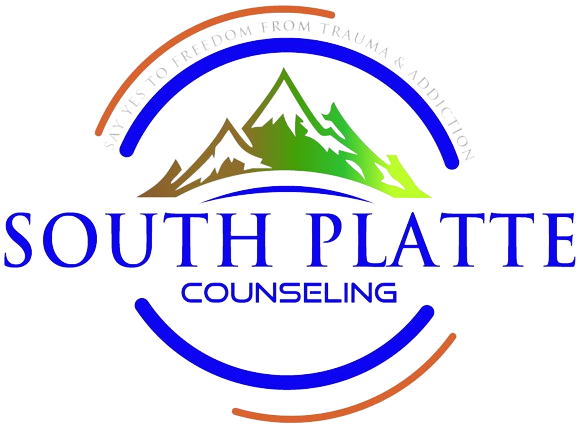Evolving Addictions To Self-Manage Trauma
Editor’s note & warning: This blog touches on childhood trauma, drug addiction, homelessness, and alcohol abuse. Please take care while reading.
As best with most things, let’s start at the beginning. I live in America now, but I was born in England and lived there until I was 20 years old. Here’s the thing about England you may not know; it’s an iron fist in a velvet glove. That pretty much encompasses everything about the English in a nutshell, from our social etiquette, to how we handle things internally within ourselves. “Keep calm and carry on” isn’t just a cheeky war slogan; it’s our way of life. Keeping a “stiff upper lip” was the currency I was raised on. Being the baby brother of six older sisters, being a “man” even as a young boy was deeply ingrained in me from the beginning. I was baptized in the waters of toughness and stoicism in the church of “of course, there’s nothing wrong here.”
When I was a little kid, I experienced the worst kind of trauma and abuse you could experience at that age. I won’t elaborate because that isn’t what this blog is about, but I’m sure you understand what I mean. Obviously, my entire life changed. Overnight, I had become a reclusive child that my mum no longer understood. Of course, she knew something was wrong, but I would never tell her, no matter how much she begged and pleaded. I never told anyone. And now, this monstrous void inside of me was eating me alive, and I had no idea how to process it. I didn’t have the emotional or mental capacity to understand, let alone the words or skills to manage. I shut down because I didn’t know what else to do. I hadn’t been taught otherwise. I kept my stiff upper lip and kept calm and carried on.
Of course, that was far from the last of it.
By the time I was a teenager, I had spent a few years homeless on the cold and dreary streets of London as a hard-core drug addict. The drugs let me become numb to it all – to not think about it or anything for a moment. I had some reprieve from the trauma I had been running from and carrying with me at the same time. I couldn’t escape myself, so I found some relief and solace without having to talk to anyone. Apart from the drugs, I was handling things like a proper English lad. Great Britannia would be proud.
Thankfully, my family hadn’t given up on me. They found me and sent me off to America to live with one of my sisters and go to rehab. Being away from England and in a new place helped. It felt like a fresh start. I finally felt hopeful. Isn’t America the place you can be anyone and anything you want to be? I knew I would build my American Dream and not squander this chance at a new beginning. Although, while in rehab, I never let anyone get to the bottom of the “why” I did drugs. I did my time to make my family happy, and I moved on. Plus, if I went back to England, I knew what would become of me. I knew I would find my way back to those familiar streets and start using again. I hadn’t dealt with what happened to me, and I still didn’t want to feel. Going back would be the end of me.
So I set forth building my American dream. I worked hard and played hard, but I didn’t go out searching for what gave me comfort in England. I knew I wanted more for myself, and going down the same path wouldn’t give it to me. So instead, I turned to a more legal and accessible distraction – alcohol. As a man in his early 20’s, drinking with the best of them is a normal thing, and everyone was none-the-wiser. I could run from my demons right in front of everyone.
For a few years, I walked the wrong side of the line on alcoholism. But, being the eternal Englishman that I am, I would handle it on my own. I’d stopped using drugs – I could cut back on my alcohol consumption, too. I knew I would never give alcohol up entirely – I would never besmirch my long English heritage in such a way. I had a reputation to keep. So, I muscled and trudged through. I was keeping myself in check and burying everything deeper, doing it all on my own. I didn’t need anyone’s help.
As the years went on, my next distraction became workaholism. Well, let’s be honest with each other, my workaholism has always been there, but as my career flourished and became more demanding – work became the most important thing to me. Rubbish fact about me: I cut my honeymoon short to come home early and handle work issues. My lovely bride dealt with the situation with patience and grace, but I set a precedent and ongoing standard of my life in that pivotal moment. I didn’t admit it to myself (because I didn’t know how to name my workaholism back then), but shamefully, I put her second to what I felt was most important – my work and submerging my pain. The same pain I had been running from that had been inside of me for the majority of my life. It had become a hollow ache in my heart that I carried around with me – my ceaseless albatross that I didn’t know how to live without anymore. I’d endured this way for so long I didn’t know how to live any other way. This is just who I am. It goes without saying, my marriage didn’t last the test of time.
That’s when I finally broke. I couldn’t manage it anymore. It all became too much, and I could hold my “stiff upper lip” no longer. The weight of muscling through (at this point) over three decades of buried trauma, trying to dominate and keep everything down and controlled became crushing and suffocating. I could handle my exceedingly broken heart from childhood, but my adult heart couldn’t take this compounded anguish of my divorce. It had never healed in the first place to be able to handle anything more. I could no longer keep calm, so how could I carry on?
I hated myself. I hated myself for not being “strong enough” for not handling everything on my own. That’s what I’d been taught my entire life, and, in the end, I had nothing because of it. I hated myself for what was done to me, and I hated that I couldn’t deal with it, hide from it, or let it go – even after 30+ years. I hated myself for my coping mechanisms that ended up pushing people away for my emotional protection. I hated that I felt like no one knew me because I was never vulnerable enough to let anyone truly in, and I hated myself for feeling like this over something that wasn’t my fault. I hated all the time and years I had wasted feeling like this.
I was a shattered man.
What’s worst is I had no idea what to do. What was I to do? As a man, I don’t talk about, well…anything. But what I did know was that I could not move forward in my life without some sort of help (and it took me a long time to come to that realization). I knew what self-management had gotten me, and that was no longer an option.
So, ever so begrudgingly, I did talk to someone. Actually, during my first session, I believe I just sat there. As a particularly loquacious person, I found it bizarre that I couldn’t find the words. How was I to speak the truth about something that I could hardly admit to myself? Was I supposed to share my deepest, most secretive, and shameful parts of myself with a stranger when I hadn’t even told my wife? The experience of therapy was a rather difficult transition for me, to say the very least.
But I kept going, and honestly, at times, I did not like how it felt. But, I knew I couldn’t go backward, so I had to keep going forward – towards finally healing. To understand and accept that I deserved to be happy, and to know that that horrible person from my childhood would never take another moment of my life from me. Realizing that was a rather significant breakthrough I had whilst in therapy. That’s when I truly started to move forward into the next chapter of my life.
Years on, I’m a far cry from being that runaway, drug-addicted kid living in the gritty underbelly of London. Instead, I feel I have become (and am still becoming) a person my family and I can be proud of. But, as my many coping patterns show, ignoring my past childhood trauma isn’t about “addiction” per se; it was about finding something else I could lose myself in. Whether it be drugs, alcohol, love, or work – they all served the same distraction. Unfortunately, focusing on my work didn’t make the fruits of my labour any sweeter, and keeping those who loved me the most at arm’s length to protect myself only created more heartache in the end.
I understand I am a flawed man, but no worse than the rest of us. Unfortunately, it’s taken me a fair bit of time to start to unlearn the poor coping strategies we English have instilled in us (“Keep calm and carry on” may have helped us get through the war, but honestly, it’s no way to live).
As I rebuild my life and myself, I realize I still have a long way to go and many things to learn (and unlearn). I know I have a fair amount of regrets in my life; however, therapy will never be one of them.



